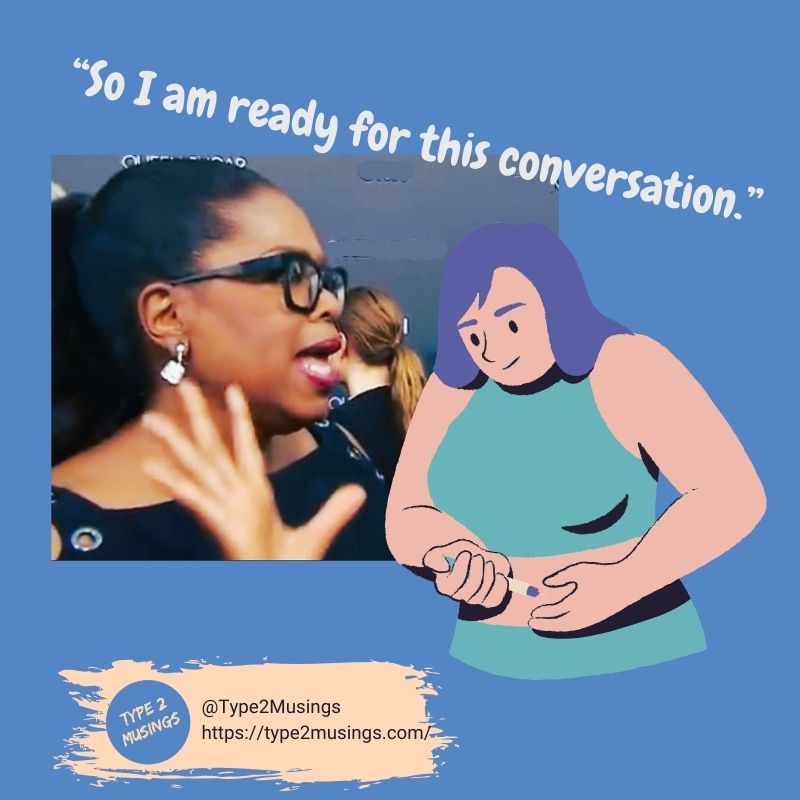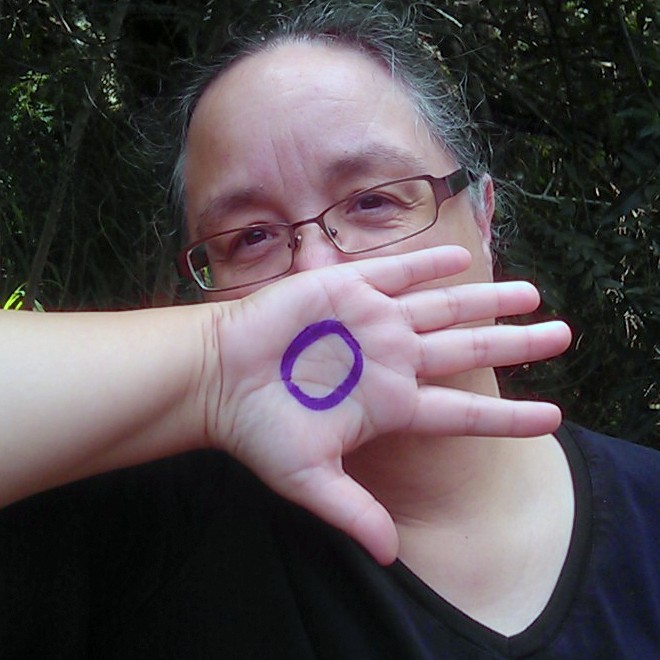Oprah’s Ready to Talk about Ozempic, Are You?
If anyone’s personal experience with changing body size and weight loss is the embodiment of societal stigma and prejudice around body weight, it is Oprah.
Changes in her body size and her personal weight journey have played out in the public over the past 25 years. We’ve seen her body shrink and grow and shrink again. At each turn her personal habits, integrity, and discipline were scrutinized and put up for public comment and commerce.
Recently, Oprah hosted a panel called “The Life You Want Class: The State of Weight.” Joined on the stage by a couple of doctors who specialize in obesity and a psychologist, they discussed the obesity and weight “crisis” in the U.S.
I was surprised by what she had to say about using Ozempic for weight loss. She characterized using Ozempic for weight loss as “taking the easy way out.”
The easy way out?
Wait. So, not only are people (women in particular) supposed to have their body be a certain size but it only counts if they achieve that result in a certain way? Weight loss has to be difficult or you’re cheating? If you use a pharmaceutical as part of your weight loss journey then somehow your results are less worthy? You have to work harder, not smarter or you didn’t complete your penance?
No wonder people are circumspect about talking publicly about any change in their body size and whether or not they used Ozempic or Wegovy.
It is just this kind of judgment and mixed messages that gets in the way of having honest conversations about obesity, weight loss, and managing type 2 diabetes.
The latest weight loss miracle?
For those who don’t know: Ozempic is an injectable that is taken weekly to help improve glucose levels for people with type 2 diabetes. It also provides some cardiovascular benefits, reducing the likelihood of heart attack and stroke. Oh, and using Ozempic can also lead to weight loss.
It’s this last point that gets all the attention.
Ozempic (also the injectable Wegovy) is a semaglutide that acts as a GLP-1 receptor agonist. GLP-1 is a hormone that reduces appetite along with affecting insulin and glucagon levels. This hormone creates the sensation of fullness and slows the movement of food through the stomach.
The FDA has approved Ozempic for use by people with type 2 diabetes to reduce glucose levels, but not for use as a weight loss agent. The FDA has approved Wegovy for use as a weight loss agent, but only if the person has also been diagnosed with high blood pressure, type 2 diabetes, or high cholesterol along with needing to lose weight.
But either way, here’s the part that always gets always gets overlooked when people start talking about using these drugs as some kind of miracle for weight loss: “along with diet and exercise” and “as part of a weight management program.”
Ozempic was never designed to resolve obesity or those 20 extra pounds on its own.
Just a pleasant side effect?
The most common side effect of taking Ozempic is that it curbs cravings, sometimes to the point that it kills the appetite completely.
It’s been described as silencing the mental chatter associated with thinking about food and eating. The effect also seems to apply to craving alcohol, which has started a conversation about using Ozempic to counter alcoholism and addiction.
You’re thinking, “Isn’t curbing cravings a good thing?” Maybe. But when you lose all interest in food and eating while taking other diabetes medications at the same time it can be not so good. This combination can result in extremely low blood glucose levels (hypoglycemia) which can be physically damaging, even life threatening.
This is not the only potentially dangerous side effect that has been reported with Ozempic.
GI upset is a well-known side effect of the GLP-1 class of medicines. Nausea, diarrhea, constipation, abdominal pain, heartburn are all listed in the standard, government-approved information sheet for Ozempic. However, there’s also been reports of people developing severe gastroparesis (stomach paralysis) while using Ozempic.
There’s been reports of negative effects on mental health, including severe anxiety and thoughts of harm and suicide. And even malnutrition.
Am I the only one hearing echoes of Fen-Phen?
Any not-so-pleasant side effects?
All the hoopla around off-label use for weight loss has disrupted access and affordability for the very people Ozempic was developed to help – people with type 2 diabetes. It’s created an international shortage that could last for years (according to manufacturer Novo Nordisk).
Recently, the shortage came to my pharmacy. Instead of being able to get a three-month supply, Without warning or explanation I only received one. I submitted my refill online as usual, but the package only contained one pen. The receipt stated cryptically, “Remaining items will be shipped separately.”
At first I read that to mean that I should expect a follow up shipment to be sent in a few days – automatically. But when no additional package arrived after a week, I called the pharmacy. The person on the phone would only say “There’s a national shortage emergency.” And no, despite the note on the receipt the remaining items were not going to be on their way to me shortly. I would have to wait until my next refill was authorized and only one pen would be sent at a time.
This meant two things. One: I wouldn’t have any backup pens available to me if the one I was using somehow went bad. And, two: My out of pocket cost for Ozempic immediately increased by a third. (My pharmacy coverage discounts my co-pay if I order a 3 month supply and have it shipped to me.)
What about people with type 2 diabetes?
Ozempic has proven beneficial to people with type 2 diabetes. With or without weight loss, it has helped lower and maintain glucose levels. When it comes to diabetes, glucose management is the cornerstone of effectively managing your overall health and avoiding serious complications. Complications that can include cardiovascular disease, stroke, kidney disease, nerve damage, and blindness.
For me, Ozempic has helped me better manage my glucose levels for just about two years now. My A1C has stayed within my target range and my need for other diabetes medications has gone down. But now that is threatened by shortages caused in large part by off-label use.
People who are paying more out-of-pocket to be able to use Ozempic for an off-label use are being given not just access, but priority. Money talks, as they say. Even in healthcare.
What has gotten lost in all this talk of Ozempic as the weight loss miracle drug is the benefits it brings to people who are living with diabetes. People who face the potentially devastating consequences of that diagnosis every single day of their lives.
When Ozempic goes to that celebrity so that they can fit in their designer outfit at a public appearance, instead of helping some common person manage their type 2 diabetes, it can feel like what we value is vanity over health.


